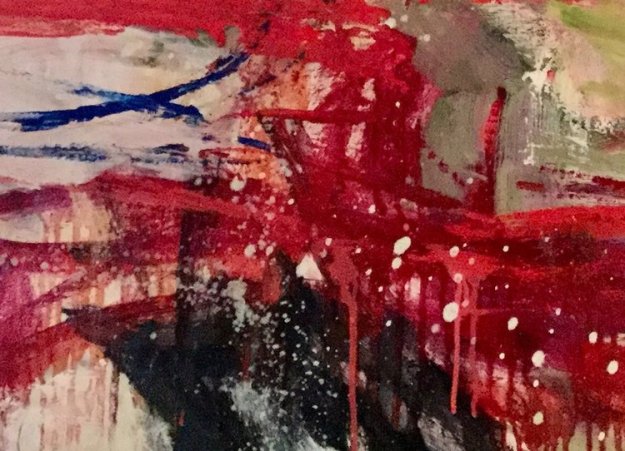Psalm 58
<To the leader: Do Not Destroy. Of David. A Miktam.>
1 Do you indeed decree what is right, you gods?[1] Do you judge people fairly?
2 No, in your hearts you devise wrongs; your hands deal out violence on earth.
3 The wicked go astray from the womb; they err from their birth, speaking lies.
4 They have venom like the venom of a serpent, like the deaf adder that stops its ear,
5 so that it does not hear the voice of charmers or of the cunning enchanter.
6 O God, break the teeth in their mouths; tear out the fangs of the young lions, O LORD!
7 Let them vanish like water that runs away; like grass let them be trodden down and wither.
8 Let them be like the snail that dissolves into slime; like the untimely birth that never sees the sun.
9 Sooner than your pots can feel the heat of thorns, whether green or ablaze, may he sweep them away!
10 The righteous will rejoice when they see vengeance done; they will bathe their feet in the blood of the wicked.
11 People will say, “Surely there is a reward for the righteous; surely there is a God who judges on earth.”
Many people who actually read the words of this psalm would be surprised that these words would be found inside their sacred scriptures.[2] These words are never appear in the Revised Common Lectionary, and this psalm (along with Psalm 59 and 60) were never included in the Psalms in the hymnal I grew up with (the Lutheran Book of Worship). They do appear in the newer hymnal for my denomination (Evangelical Lutheran Worship) but in most churches they are ignored and most people reading the bible simply read over these words without stopping to reflect on these harsh and jarring words spoken about one’s enemy. I attempt to approach every piece of scripture with honesty and respect, trying to listen for the wisdom it has to speak. While I would agree with what 2 Timothy states about all scripture being inspired by God and being useful for teaching, reproof, correction, and training in righteousness, I would add the caveat that not all scripture is useful at all times in one’s life or experience and these jagged words crying out for vengeance may do harm to the unintended hearer who is dealing with a trauma or a miscarriage. The psalms frequently paint with the language of emotion and here the dark reds of anger, frustration, and hatred form a dangerous song that longs for blood. Though it may be uncomfortable to look at, these words have something to say into the bland and safe palette of language that Christians have often used.
The bible is a strange document among the holy writings of the world. Much of the bible is written by people who find themselves in a world where they are suffering because of the violence that is practiced on the earth and in the moment there seems to be a lack of justice on those perpetrating the violence. There are portions of scripture that are written by those in power, but it is also balanced by those prophets, poets, and pariahs who find themselves challenging the injustice of those charged to judge or rule in righteousness. I think many Christians have been taught to suppress their anger and to attempt to hide it from God, but here we see the psalmist giving full voice to their desire for vengeance in their prayer and placing that uncomfortable emotion into God’s listening ears. The world is not as it should be. It is unjust. The righteous are suffering. The wicked are powerful. God needs to act.
Unlike most Psalms, God is not addressed until verse six. The initial focus is on the ‘mighty ones’ who have used wicked words and violence in a way that arouses this heated response from the poet. These ‘mighty ones’ have corrupted the practice of judgment among the people, they have reigned by violence, they have birthed a world of lies, they are like snakes that are unable to be restrained by the snake charmer. Their venom and violence now flow unrestrained into the world of the psalmist. How does one reconcile a vision of justice with the experience of injustice? The answer the psalmist gives in this moment is this jagged prayer for God’s action in vengeance towards those who have destroyed their world.
The seven imprecations (verses 6-9) may be difficult to read from a comfortable place. Praying for God to violently break the teeth or the jaws and defang those who attack may seem unchristian. Desiring our enemies to be transitory like flowing water or trodden grass may seem like a strange prayer. Wanting our enemies to feel the hot flame of thorns once they catch fire, or to dissolve like the snail into slime or to be like a miscarried fetus may seem like harsh and unforgiving language and yet here these words exist in the middle of our scriptures. Yet, vengeance belongs to God and not to the one who utters these words. Perhaps we may never utter these exact words to God. We may have been taught that anger or sadness are to be erased from our prayers by those who taught us our faith, but the scriptures bear witness to the complete palette of emotions in the life of the faithful with God. The life of faith in the bible is often more colorful than the life we encounter in the congregations where the religious gather.
The image of bathing one’s feet in the blood of the wicked may seem triumphal and uncomfortable. Yet, as uncomfortable as talking about the judgment of God may be in many modern churches, sometimes the only way beyond the current world of oppression and violence is for the Pharaohs, Caesars, princes, kings, and rulers who reign over the unrighteousness to be removed along with those who support them. As much patience as God shows throughout the bible, there are those who resist God’s ways and God’s will until the end. We may recoil at this violent language which also emerges in Psalm 68, the prophets (ex. Isaiah 63: 1-6 and Ezekiel 39) and particularly in Revelation (see Revelation 14). Yet, these words rest within our scriptures and commit this violence into God’s hands so that the faithful may continue to hope for a world beyond oppression.
I come from a privileged life. I am a white heterosexual well educated male living in an affluent area of the United States. I also understand that my experiences are not universal. Although it would be easy to take a razor to our scriptures and, like Ben Franklin, excise all the parts that don’t agree with our experience or worldview, I would caution that these uncomfortable words do have something to speak to us. Almost twenty years ago I encountered Miroslav Volf’s powerful challenge to the privileged worldview which wants to excise the judgment from the scriptures:
Most people who insist on God’s “nonviolence” cannot resist using violence themselves (or tacitly sanctioning its use by others). They deem the talk of God’s judgment irreverent, but think nothing of entrusting judgment into human hands, persuaded presumably that this is less dangerous and more humane than to believe in a God who judges! That we should bring “down the powerful from their thrones” (Luke 1: 51-52) seems responsible; the God should do the same, as the song of that revolutionary Virgin explicitly states, seems crude. And so, violence thrives, secretly nourished by belief in a God who refuses to wield the sword.
My thesis that the practice of nonviolence requires a belief in divine vengeance will be unpopular with many Christians, especially theologians in the West. To the person who is inclined to dismiss it, I suggest imagining that you are delivering a lecture in a war zone (which is where a paper that underlies this chapter was originally delivered). Among your listeners are people whose cities and villages have been first plundered, then burned and leveled to the ground, whose daughters and sisters have been raped, whose fathers and brothers have had their throats slit. The topic of the lecture: a Christian attitude toward violence. The thesis: we should not retaliate since God is perfect noncoercive love. Soon you would discover it takes the quiet suburban home for the birth of the thesis that human nonviolence corresponds to God’s refusal to judge. In a scorched land, soaked in the blood of the innocent, it will invariably die. And as one watches it die, one will do well to reflect about many other pleasant captivities of the liberal mind. (Volf, 1996, pp. 303-304)
Even when we can acknowledge that these violent words belong within our scriptures, what possible ‘teaching, reproof, correction and training in righteousness’ can they offer to those who do not find themselves in the position of oppression crying out for God’s vengeance? Ellen Davis proposes three possible uses for psalms like this one when we are angry, and one, if we have the courage to encounter these words when we are not. First, they can give us words to wrap around our anger when we are not able to find adequate words on our own. She shares the advice a professor once gave her after a betrayal, “Go into the chapel when no one else is around and shout these at the top of your lungs.” This practice allowed her to both vent and release the anger but hearing herself speak these words she also could hear the self-righteousness and pettiness in her petitions. Secondly, the psalms function as divinely given ‘counselors’ and teach us that vengeful anger is one mode of access to God. We can come to know that God who created us for life together is also outraged by those who destroy community or deny justice. Thirdly, the cry is a cry for God to act which allows the petitioner to bypass acting personally against the one who harmed us. We demand our enemy be driven into God’s hands, but we are not in control of what happens there or how God brings about this justice and reconciliation. Finally, she suggests if we are reading when we feel none of the feelings in the psalm to turn it around and to ask if there is anyone in the community or among God’s people who may want to pray these words about me? (Davis 2001, 26-29) I may want to shrink away from the language of the prayer at times, but there may be other times when I need these very words to pass my lips so they may exit my heart. Sometimes I need to commit judgment to God so that I do not take vengeance into my own hands. When I am courageous enough, I may wonder who I may have wronged by judging unfairly, speaking poisonously concerning, refusing to listen, or the ways I have either actively dealt out violence or passively benefited from the violence dealt out by those who sat in a privileged place that I share. These are hard words that may be hard to speak. Yet sometimes we need to access the whole spectrum of emotions we experience in life.
[1] The word here is ‘elem which means silence. It bears the same root letters as the Hebrew ‘elohim (‘mighty ones’ or a generic term for gods) as gods. The NRSV and most other translations view this as ‘elohim and translate based on this assumption. The NRSV translates this as the common ‘gods.’ While this is a possible reading (see Psalm 82:1), mighty ones can also refer to warrior or powerful individuals. Within the context of this poem the opponents seem to be other humans so the more generic ‘mighty ones’ seems appropriate here. If you choose to translate using ‘elem the accusation is closer to, “Do you indeed declare what is right in silence?”
[2] Although Psalm 58 is full of challenging choices for a translator (of which I am highlighting only a few) the words in doubt are not the most graphic ones.









